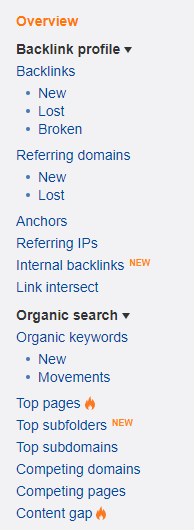Ask a seasoned SEO how to get good at the trade and many will give you similar advice.
You may be directed towards conferences or industry news sites. These are excellent ways of building your knowledge of theory.
Learning theory alone is not enough, others will say. You should hone your craft with a practice website. This might be your own blog or an affiliate site.
You can test out your newly acquired knowledge, learned from others’ experiences and ideas, without risking anyone’s livelihood. This too is solid advice.
There is nothing like getting stuck in at the deep end to put your understanding to the test.
How though do you identify where you are going wrong if you aren’t seeing growth in your “practice site”? It can be difficult to see where your gaps in knowledge are which are preventing progress.
The necessary skills of a successful SEO are wider than just the ability to make a webpage rank. We need to be able to communicate, think strategically, and understand the wider marketing landscape.
This article sets out some alternative methods of testing your existing knowledge and making you a well-rounded SEO.
1. Reddit
You need no introduction to Reddit, if you are within the digital marketing industry you are likely already familiar with it. However, you might not be aware that it’s a great educational tool as well as a place to lose 3 hours looking at cats.
One of the most enjoyable aspects of Reddit is that there are communities for just about everything, including digital marketing.
There are some dedicated sub-reddits specifically for SEO; r/SEO, r/bigseo and r/TechSEO are popular ones. Here you can ask your questions about SEO or the impact of a recent Google announcement.
John Mueller, Google Webmaster Trends Analyst, is also known to frequent these “subs” and is very helpful in answering Redditors’ queries.
By asking a question in these forums you are inviting answers from SEOs around the world. It is instant access to professionals you may never meet otherwise.
Be warned though, there are no barriers to providing advice on Reddit. Anyone with an account can comment on a post. This means there is no way of vetting the advice you are given. That is, apart from the down-voting and corrections of other Redditors.
This brings me on to the second use of Reddit in building your SEO knowledge, answering questions yourself.
There is nothing like mustering your courage and giving your opinion, just to have someone swoop in and correct you. It can be painful, but it is also an effective way to learn.
If you have an opinion about a subject someone has raised in their post, take a risk and voice it. Accept that someone with more experience may tell you why your suggestion would not work. You can guarantee you will never forget what they said.
You may disagree with them, but that process of reasoning through your argument will strengthen your knowledge. Please don’t actually argue with them, let’s keep the SEO industry a friendly one.
You could ask them more clarifying questions, however, which will help you dig deeper into their reasoning. You may listen to their response and realize they are correct. They may save you making a serious mistake.
Posing your response as an opinion that you are asking to have sense-checked is a safer way of opening up your theory for challenge by others. It is also a better way of preventing the original poster from following your advice if it might not be right.
2. Write SEO Guides
Another way to sense-check your SEO methodology is to write guides for other people. It will help you to organize your thoughts and identify where you may be lacking detail in some areas.
You could create material for others in your team, or to publish online, and ask for feedback. This will strengthen your processes as well as expose you to new ways of working.
The key is to make sure you ask other people to try out the guides and allow them to constructively feedback on them.
The process of creating a guide means you will need to have enough knowledge of the subject that you can bring someone else through it step-by-step.
Through writing it you will likely need to research some aspects and inevitably discover other methods of achieving the final outcome.
It may lead you to discover more effective ways of carrying out your regular SEO tasks.
3. Teaching a Family Member
If you have been in SEO for a while there is a high chance you have spent at least one family gathering explaining that you don’t actually work for Google, but you do care a lot about search engines.
Use this opportunity to sharpen your SEO skills by exposing your knowledge gaps and refining your powers of communication.
When asked to explain what you do for a living you are stress-testing your understanding of the fundamentals. Teaching family or friends the basics of SEO will force you to think through what you know in a logical way.
It will highlight any gaps in your knowledge, especially if your willing subject starts asking questions that you feel unable to answer. This will give you an indication of what you need to research in more detail.
Take the question, “what is a search engine robot?”. You might be certain you know. However, explaining it to someone else could show that you are not as sure of the finer details as you thought. Understanding what a search bot really is could greatly open up your understanding of technical SEO.
If every question you struggle to answer is used as a jumping-off point for your own learning you will fill gaps in your knowledge quickly.
Teaching an industry-outsider will also help you learn how to efficiently communicate SEO to someone with little to no knowledge of it. This is a very valuable skill as we frequently need to talk about SEO to clients, stakeholders and bosses who may be only aware of it at a top-level.
It could also give you ideas of the sorts of questions a client may have, or where there are frequent misunderstandings of how search engines work.
Discuss SEO enough times with those who don’t know about it and you will soon have a multitude of analogies and illustrations at your disposal.
4. Learning from Colleagues in Related Fields
Don’t work in isolation.
Ask a colleague or acquaintance who is in a related field to give you an overview of their job. It can be a great way to dig into how their profession can impact yours.
For instance, learning more about PPC can help you understand conversion funnels. Asking a developer how code is rendered is invaluable for growing your proficiency in technical SEO.
Discussing other stakeholders’ jobs with them gives you a better idea of how SEO fits into the wider picture of a website and profitable business.
Whenever someone else’s decision impacts your SEO success ask them why they chose that course of action.
- Why did the developer add that line in the robots.txt?
- Why did your boss decide to lower the SEO budget in favor of display advertising?
You will learn more about other teams’ pressures, priorities, and goals. In turn, the way you form SEO strategies could become more commercially effective.
Opening yourself up to learn about other people’s jobs will improve your relationship with them, which can pay dividends in the future. It will also broaden your knowledge of the relationship between SEO and other factors that can impact it.
Organic traffic to a website is affected by a multitude of elements, some of which are controlled by your colleagues or clients. It is crucial that you understand what these are and what causes them to happen.
5. Study a Related Subject
A great way to become a more effective SEO is to study other disciplines.
For instance, learning about information retrieval and databases can help you better understand how a search engine may read, store and serve your content.
Studying psychology, sociology and political science could help you identify the driving forces that impact search behavior.
With SEO being such a vast discipline, it is understandable that you would want to dedicate the limited time you have to studying specific SEO skills and industry developments.
However, so much of what goes into driving organic traffic to a webpage finds its roots in other specialties.
Think how more compelling your meta descriptions will be when you have a better idea of what motivates human decision making.
Imagine how more effective your outreach campaigns will be when you know the psychology of what causes something to “go viral.”
With such a prevalence of free and low-cost study material available online it is extremely easy to access beginner-level information in these subjects. Udemy and Alison are two online providers who offer free and low-cost courses.
You might pick up some tips that put you ahead of the competition.
6. Audit Other Websites
When you have been working on a website for a long time it can be hard to see the wood for the trees. You may be stifled by long development queues or struggling to get copy written due to internal politics.
Sometimes you need to step away from the projects you are close to and have a look at what other people are working on.
If you are aware of a website within your industry that is dominating the SERPs take a look at it in detail. Go through an audit of the website. Look to see how they have configured the site for SEO.
Look at the way the copy has been written. Check their on-page optimizations.
Through assessing someone else’s work you may discover they have handled aspects differently to how you would. It might uncover new ways of achieving results that you hadn’t previously considered.
The issue with looking at a website objectively, however, is that you don’t know what has led to the decisions about it being made.
You may notice a lack of schema markup but not know that it is being implemented through Google Tag Manager. This might be due to limitations with the development of the website.
Don’t take a successful website’s seeming SEO practices as the best way to do something, use it as a prompt for further research.
7. Learn Through Job Interviews
During SEO job interviews candidates are often asked questions to prove they have the required level of knowledge and experience in a test-like situation.
The pressure of being put on the spot and your answers judged will likely bring to the surface the areas of SEO you feel confident speaking about and those you do not. The questions themselves may prompt you to go away and study.
If you are in a situation where an interviewer asks a question that tests your knowledge of SEO, and you feel you have not answered it well, then use that as a prompt to look into the subject more.
Anyone who has interviewed candidates for SEO roles will likely have heard some interesting answers to their questions. If you are interviewing someone who is more junior than you, you may be tempted to dismiss their answer as “wrong” if it doesn’t match up with your experience.
Within SEO, however, different websites within different industries will find success through a multitude of SEO techniques. It may be that your experience of SEO success is not the same as another’s.
Take the opportunity when asking questions of an SEO candidate to delve into their reasoning for the answers they give. It will not only help you to distinguish if their experience is genuine, it may aid in highlighting other methods and routes to success.
8. Investigate Your SEO Tools
Digging into the unused features of your SEO tools may sound like a strange method of learning SEO, but it can be fruitful in expanding your knowledge.
If you notice there are reports that you never use it would be worth looking into what data they provide and begin researching its use.
Most tool providers have extensive documentation about the features they offer. This will likely lead you in the right direction of what they have been designed to achieve.
Tools will often add new features. This may be in response to an announcement by a search engine, or simply to meet market demand.
Whatever their reasoning, they obviously considered its use to be important enough to spend time developing it.
 An example of Ahrefs’ new software features
An example of Ahrefs’ new software featuresUpdates to tools will usually be accompanied by a lot of press releases! Read into why the new functionality has been introduced.
Understanding how the software developer intended them to be used and what they felt they are important for could open up new SEO skills for you to explore.
9. Go to Talks That You Think You’ll Find Boring
Digital marketing conferences and meet-ups are prevalent. This is great news for people wanting to learn more about our industry.
One trap that it is easy to fall into when attending these events is only going to see the talks on topics you are already interested in. This can lead you to become narrow in your focus.
Purposely go to the seminars and workshops at SEO conferences that you would normally avoid. See what new tips you can pick up in an area you don’t normally find engaging.
For some, this might mean stepping outside the remit of your job description. An outreach specialist attending a talk on JavaScript rendering might seem a waste of time.
However, if you have had little exposure to other areas of SEO this could be highly valuable in expanding your knowledge.
If your SEO career has been very specialist so far, you may well have been missing out on the fundamentals of other areas without realizing it. This might be the case in particular where your agency or team has a particular focus, like outreach or technical SEO.
Attending talks about subjects you are less familiar with will have the added benefit of showing you what enthuses other people about that specialism.
Your perception of that field may have been highly skewed due to your own experiences. You can learn a lot by listening to others talk about the side of SEO they are passionate about.
10. Read Popular Business Books
Reading popular business books can help you learn something about business that you can apply to your own company. It will at least help you to better understand what motivates your clients or management team.
This can aid you in positioning SEO activity in a way that gets their buy-in. This is a particularly important skill as you progress in your career.
Visit Amazon’s bookstore to see what the top trending business books are.
Your local library may also have a section on business books. Speaking to a librarian may uncover which are the more popular books, or at least help you to find a copy of the ones you saw on Amazon.
Popular books are more useful to you as these are the ones your manager or client is likely to be reading themselves.
Equally, if you are operating in an industry that is less focused on commerce, such as education or charity, it would be prudent to look at the popular books within those sectors.
Conclusion
SEO encompasses a lot of skills and approaches. It is critical that we stay open-minded to different techniques as user and search engine behavior evolves.
Whether you are new to the industry, or have been a practitioner for years, there is always more to learn.
Keep your skills fresh and avoid stagnation by embracing new ways of learning. Be more effective in your job by looking to other fields for inspiration.
Develop your competencies in communication and strategic thinking. If you don’t, it will be easy to get left behind.
More Resources:
- The 25 Best SEO Blogs & Resources to Learn SEO
- SEO for Beginners: An Introduction to SEO Basics
- A Complete Guide to SEO: What You Need to Know
Image Credits
Screenshot taken by author, September 2019





